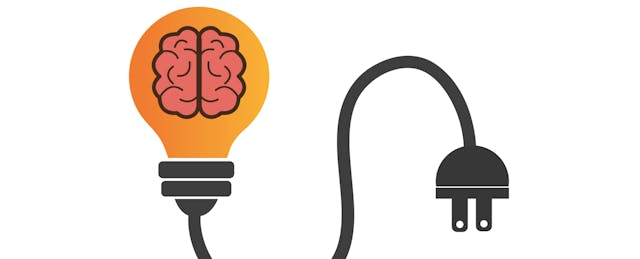John Sweller is one of the most influential learning science researchers, best known for his “cognitive load theory,” which suggests that educators should present information without extraneous details. Otherwise, the brains of students can literally overload with what amounts to intellectual clutter.
Sweller’s latest line of research offers a new insight: the human brain may need regular breaks when learning to help it refresh its “working memory” capacity.
At the heart of both lines of research is that the human brain has a pretty limited ability to hold thoughts in working memory. “The capacity is really just a few items of information—that’s all we can deal with at any given time,” Sweller said this week in an interview with EdSurge from his home in Australia, where he is a professor emeritus at the University of New South Wales at Sydney. “We can’t hold information for more than about 20 seconds without repeating it to ourselves,” he added. Just try remembering a new phone number while doing some other task to see for yourself.
For more on how to improve teaching, check out the weekly EdSurge Podcast. Subscribe on iTunes or wherever you listen.
“If a student is having trouble understanding something, what we mean is that their working memory is overwhelmed,” Sweller said.
That’s not to say that brains are not awe-inspiring computing machines. The secret is to match that limited working memory with the vast storage space in long-term memory, which he says has no known limit.
“In order to preserve the contents [in] long-term memory, only very limited amounts of novel information can be processed at any given time,” he and his colleagues wrote in a recent research paper.
Sweller and other researchers have long assumed that the power of working memory is constant—that it works equally well all the time. In his latest series of experiments, though, Sweller and his colleagues found that working memory can suffer from what he calls “resource depletion.” In other words, our working memories may get worn out from excessive use.
“It’s beginning to look like with working memory, if you’ve been concentrating on something for a long period of time without a rest, you would have some difficulty keeping on going,” he said. In other words, after a long period of focused learning, “your poor working memory becomes worse.”
It looks like working memory does recover quickly once someone takes a break from a mentally challenging task. Specifically, Sweller suggests working for 20 or 30 minutes and then taking about a five minute break to refresh. He stresses that so far this hypothesis is a theory backed by a few small studies, and that more research is needed.
This aspect of brain function may help explain a long-standing phenomenon in learning science known as the “spacing effect.”
That effect, which has been replicated in many studies, finds that students retain information better if learning sessions are spaced out over time rather than crammed into one mass block of time. Sweller said that if working memory wears out during cramming, that might explain why spacing out study sessions leads to better results.


